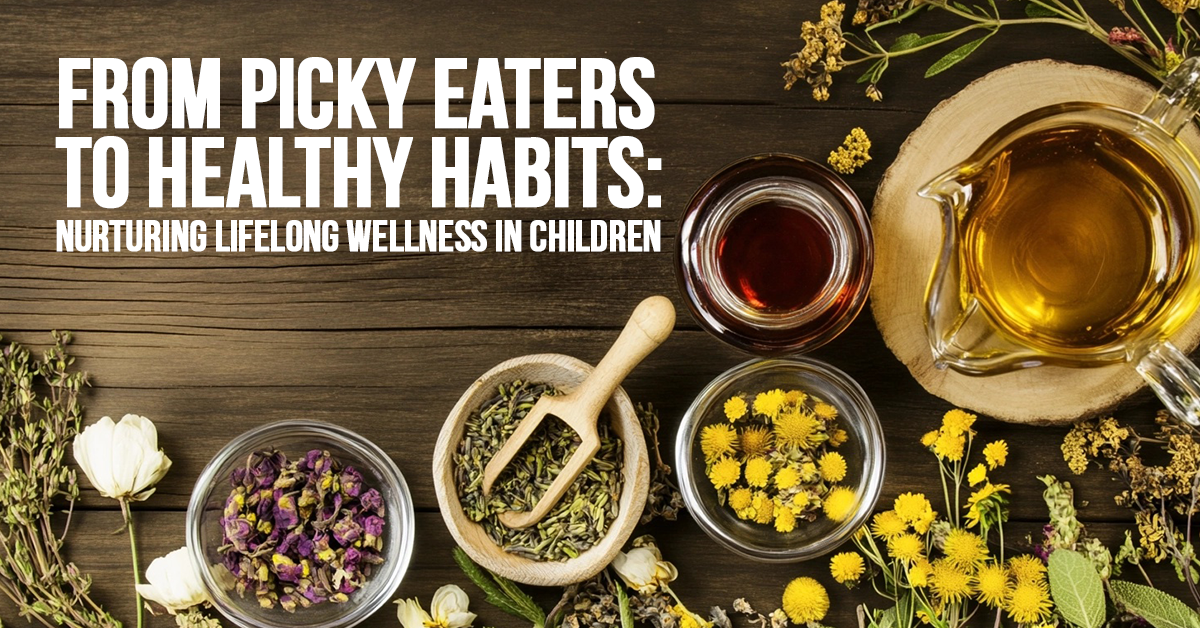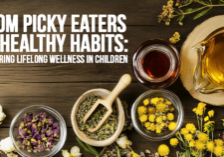From Picky Eaters to Healthy Habits: Nurturing Lifelong Wellness in Children

From Picky Eaters to Healthy Habits: Nurturing Lifelong Wellness in Children
The battleground of childhood mealtimes has been a source of parental frustration for generations. The struggle to instill healthy eating habits often leads to power struggles, food-related anxieties, and ultimately, a less-than-ideal relationship with food. From the “clean plate club” to tales of starving children, many of us grew up with food-related tactics that often failed to translate into lifelong healthy choices.
Interestingly, many adults find themselves making conscious decisions about their diets long after childhood. This raises the question: how can we cultivate healthy eating habits in children that extend beyond the dinner table and into adulthood?
Shifting the Focus: Positive and Sustainable Approaches:
- Embrace the “Better Choices” Philosophy:
-
- Move away from rigid “good” and “bad” food labels.
- Focus on offering healthier alternatives and encouraging moderation.
- Emphasize that fresh fruits, vegetables, and whole grains are generally “better choices” than processed snacks and sugary drinks.
- Stock Your Kitchen with Healthy Options:
-
- Create an environment where healthy choices are readily available.
- Fill your pantry and refrigerator with fruits, vegetables, whole grains, and lean proteins.
- Limit the availability of sugary snacks and processed foods.
- Teach the “Food as Fuel” Concept:
-
- Engage children’s imaginations by explaining how food fuels their bodies for play, learning, and growth.
- Connect healthy foods with increased energy, strength, and overall well-being.
- Frame healthy eating as a way to “unlock their superpowers.”
- Cultivate a Love for Growing Food:
-
- Involve children in growing fruits and vegetables, even if it’s just a small herb garden or a few potted plants.
- This hands-on experience fosters a connection to the source of their food and encourages appreciation for fresh produce.
- It teaches patience and the rewards of nurturing.
- Make Cooking a Fun and Collaborative Activity:
-
- Involve children in meal preparation, from choosing recipes to chopping vegetables.
- Encourage them to experiment with flavors and ingredients.
- Create a positive and enjoyable cooking experience that fosters a sense of ownership over their food choices.
- If they don’t like a dish, have them help improve it next time.
- Lead by Example:
-
- Children learn by observing their parents’ behavior.
- Make healthy food choices yourself and model positive eating habits.
- Share your own enjoyment of healthy foods and demonstrate that eating well can be delicious and satisfying.
Beyond Food: The Importance of Life Insurance:
Just as healthy eating habits contribute to a child’s well-being, life insurance provides essential financial security for their future. While encouraging healthy eating is about making the right choices for their physical health, life insurance is about making the right choice for their financial health.
Conclusion:
Cultivating healthy eating habits in children is a long-term investment in their well-being. By shifting our focus from pressure and restriction to positive reinforcement and education, we can empower children to make informed food choices that support their health and happiness throughout their lives.
Disclaimer: This article provides general information and should not be considered professional medical or dietary advice.









